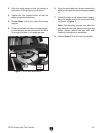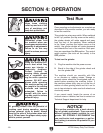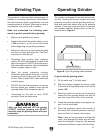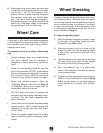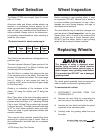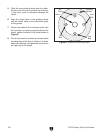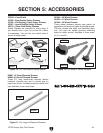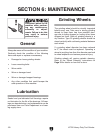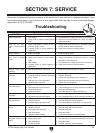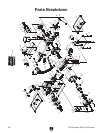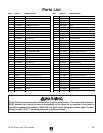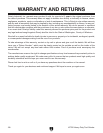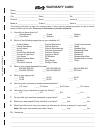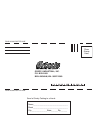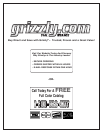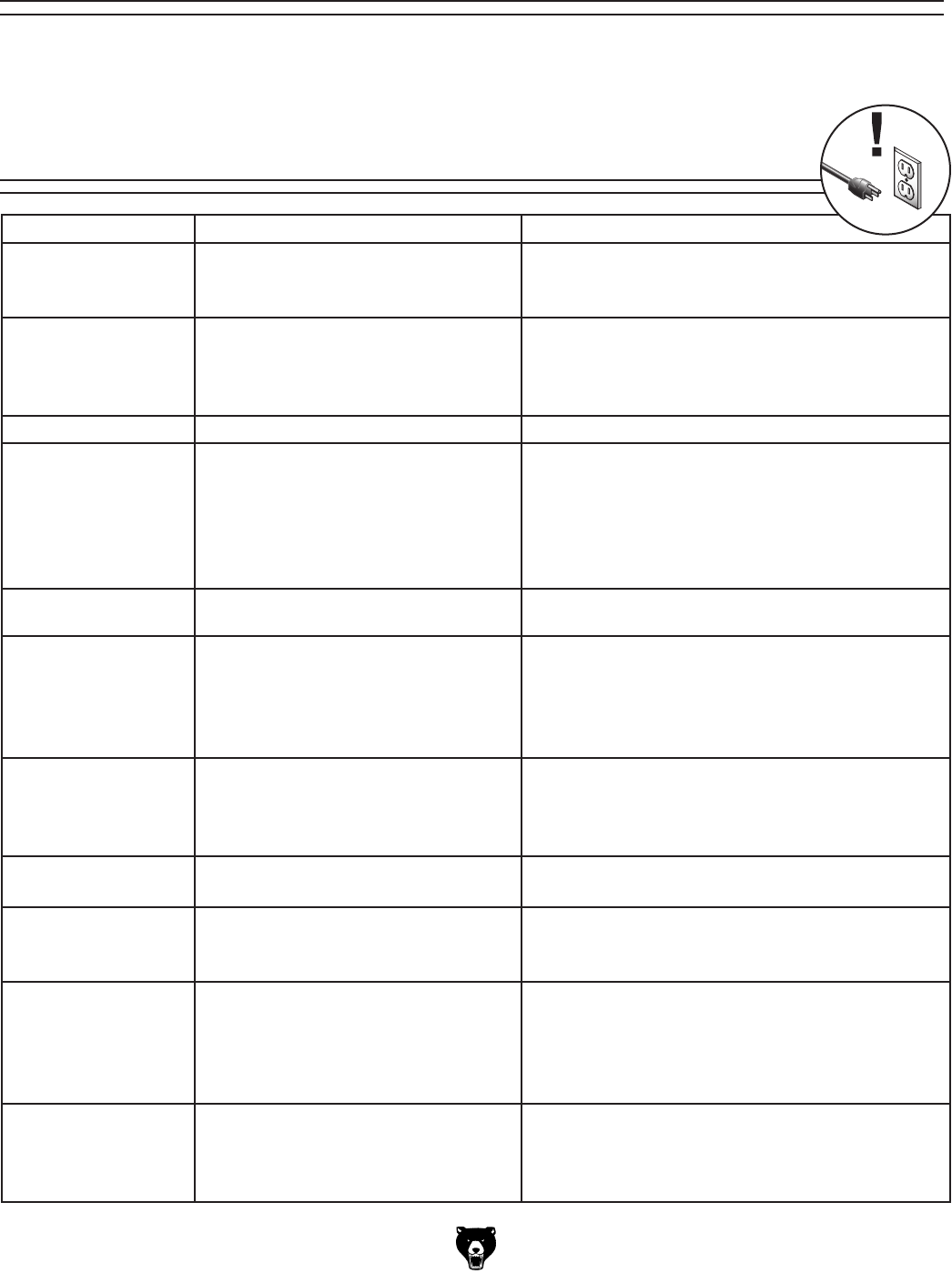
H7762 Heavy Duty Tool Grinder
-23-
Review the troubleshooting and procedures in this section to fix your machine if a problem develops. If you
need replacement parts or you are unsure of your repair skills, then feel free to call our Technical Support
department at (570) 546-9663.
SECTION 7: SERVICE
Troubleshooting
SYMPTOM POSSIBLE CAUSE CORRECTIVE ACTION
Motor will not start. 1. Low voltage.
2. Open circuit in motor or loose connec
-
tions.
1. Check power line voltage and correct if necessary.
2. Inspect all lead connections on motor for loose or
open connections.
Motor will not start;
fuses or circuit breakers
blow.
1. Loose connections or short circuit in
line cord, plug or motor.
2. Incorrect fuses or circuit breakers in
power line.
1. Inspect cord, plug and motor for damaged insulation,
shorted wires or loose connections.
2. Install correct fuses or circuit breakers.
Motor overheats. 1. Motor overloaded. 1. Reduce load on motor.
Motor stalls (resulting in
blown fuses or tripped
circuit).
1. Motor overloaded.
2. Short circuit in motor or loose connec
-
tions.
3. Low voltage.
4. Incorrect fuses or circuit breakers in
power line.
1. Reduce load on motor.
2. Inspect connections on motor for loose or shorted
terminals or worn insulation.
3. Check power line voltage and correct if necessary.
4. Install correct fuses or circuit breakers.
Machine slows when
operating.
1. Workpiece pressure is too great. 1. Reduce workpiece pressure on wheel.
Machine vibrates when
operating.
1. Grinding wheel is unbalanced.
2. Grinding wheel is cracked or damaged.
3. Arbor is bent.
4. Bearings are worn or damaged.
5. Mounting bolts are loose.
1. Adjust or tighten wheel mounting bolts as necessary.
1. Replace the wheel.
3. Inspect and replace the arbor if necessary.
4. Inspect and replace the bearings if necessary.
5. Tighten the mounting bolts.
Wavy condition on sur
-
face of workpiece.
1. Machine vibrating.
2. Workpiece not being held firmly.
3. Wheel face uneven.
4. Wheel is too hard.
1. Ensure machine is securely mounted.
2. Use a holding device to firmly retain the workpiece.
3. Dress the grinding wheel.
4. Use softer wheel, or reduce the feed rate.
Lines on surface of
workpiece.
1. Impurity on wheel surface.
2. Workpiece not being held tightly.
1. Dress the grinding wheel.
2. Use a holding device to firmly retain the workpiece.
Burning spots or cracks
in the workpiece.
1. Workpiece pressure is too great.
2. Coolant required.
3. Improper type of grinding wheel.
1. Reduce workpiece pressure on wheel.
2. Cool the workpiece more frequently.
3. Try a wheel which is softer style or a coarser grit.
Wheel dulls quickly, grit
falls off.
1. Workpiece pressure is too great.
2. Wheel is too soft.
3. Wheel diameter too small.
4. Bad wheel dress.
5. Defective wheel bonding.
1. Reduce workpiece pressure on wheel.
2. Select a wheel with a harder bond.
3. Replace the wheel.
4. Dress the wheel.
5. Consult manufacturer of grinding wheel.
Wheel clogs and
workpiece shows burn
marks.
1. Wheel is too hard.
2. Feed rate too slow.
3. Bad wheel dress.
4. Coolant required.
1. Select a wheel with a softer bond.
2. Increase rate of movement of workpiece onto wheel.
3. Dress the wheel.
4. Cool the workpiece more frequently.



